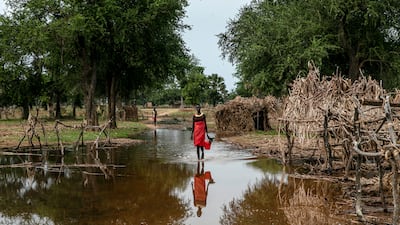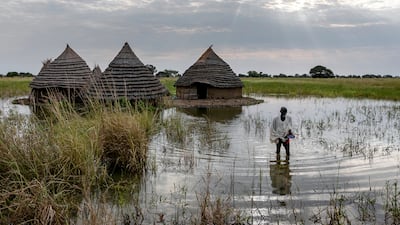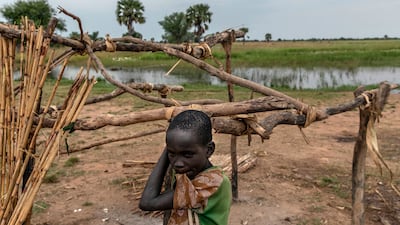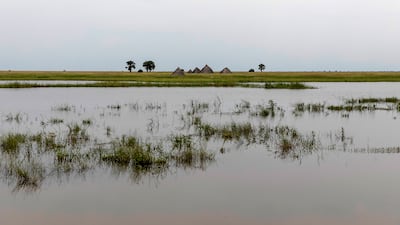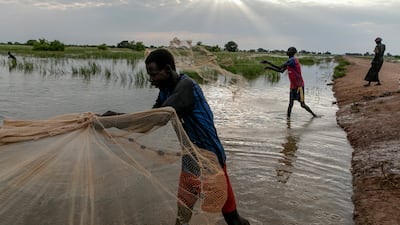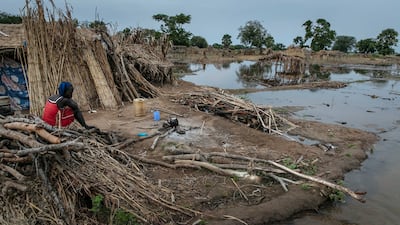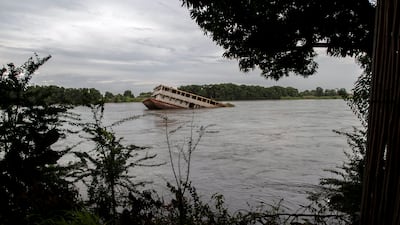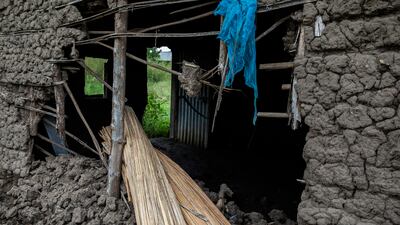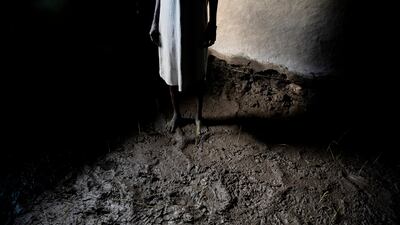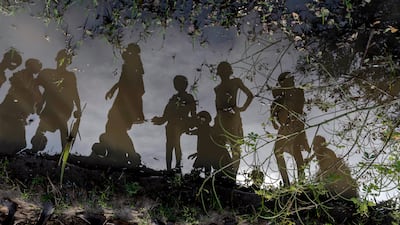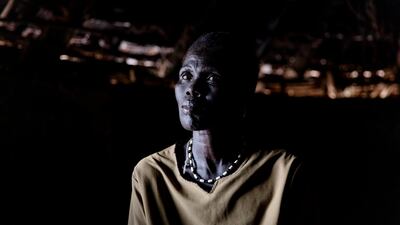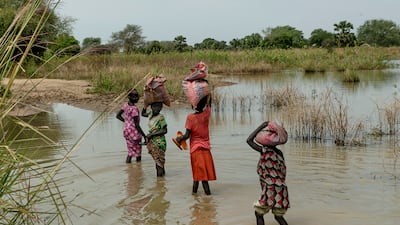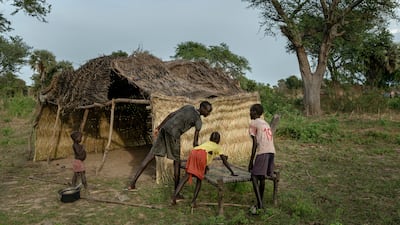Yel Aguer Deng feels like a man who has drowned.
The worst flooding in parts of South Sudan for 60 years surrounds his home of mud and grass. His field of sorghum, which fed his family, is under water. Surrounding mud dykes have collapsed.
Other people have fled. Only Mr Deng’s family and a few neighbours remain.
This is the third straight year of extreme flooding in South Sudan, further threatening livelihoods of many of the 11 million people in the world’s youngest country. A five-year civil war, hunger and corruption have all challenged the nation. Now climate change, which the United Nations has blamed for the flooding, is impossible to ignore.
As he empties a fishing net, Daniel Deng, 50, a father of seven, recalls a life of being forced to flee again and again because of insecurity. “But this one event (the flood) is too much,” he said. “It is the worst thing that happened in my lifetime.”
The UN says the flooding has affected almost a half a million people across South Sudan since May. Here in northern Bahr el Ghazal state, the Lol river has burst its banks.
This state is usually spared from the extreme flooding that plagues the South Sudan states of Jonglei and Unity that border the White Nile and the Sudd marshlands. But now, houses and crops are swamped.
A report this week co-ordinated by the World Meteorological Organisation predicted an increase in such climate shocks across much of Africa, the continent that contributes the least to global warming but will suffer from it most.
In these rural South Sudan communities, shelters of braided grass offer a fragile resistance in a land of seemingly endless water.
In Langic village, Ajou Bol Yel’s family of seven hosted nine neighbours who had lost their homes. The elders sleep outside on beds protected by mosquito nets, while the children share the floor.
In Majak Awar, about 100 families have been displaced twice, in June when homes were flooded and again in August when their shelters were ruined, too.
“I want to leave for Sudan,” said Nyibol Arop, 27, a mother of five, as she boiled her morning tea just steps away from the stagnant water that threatens her shelter.
It is hard to see a stable future when people are constantly on the move, a lesson learnt during the civil war that displaced millions of people before a peace agreement in 2018.
“Floods are not constant. Some people will stay, and some will go,” said Thomas Mapol, 45, a father of nine, as he pointed to the destroyed houses of his village near Majak Awar. “But me, I cannot move anywhere. There is no other place that I know.”
